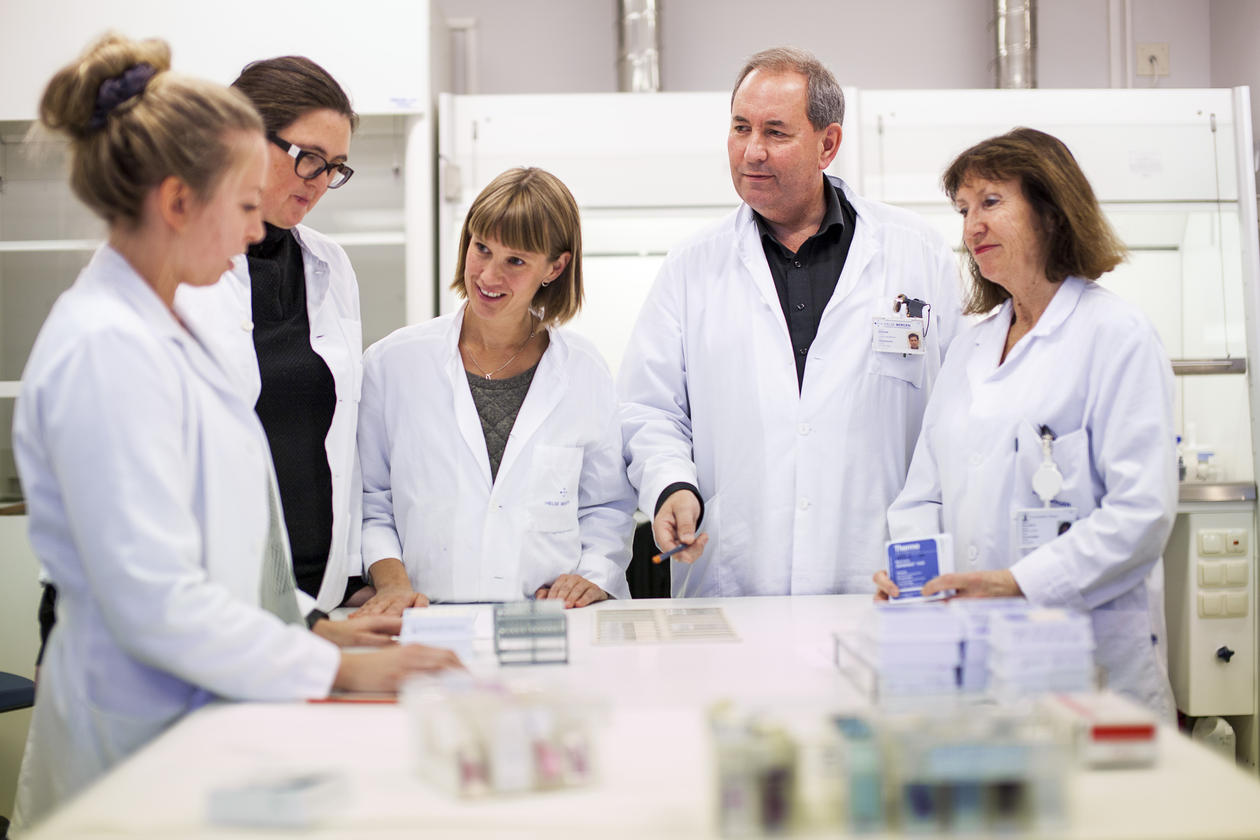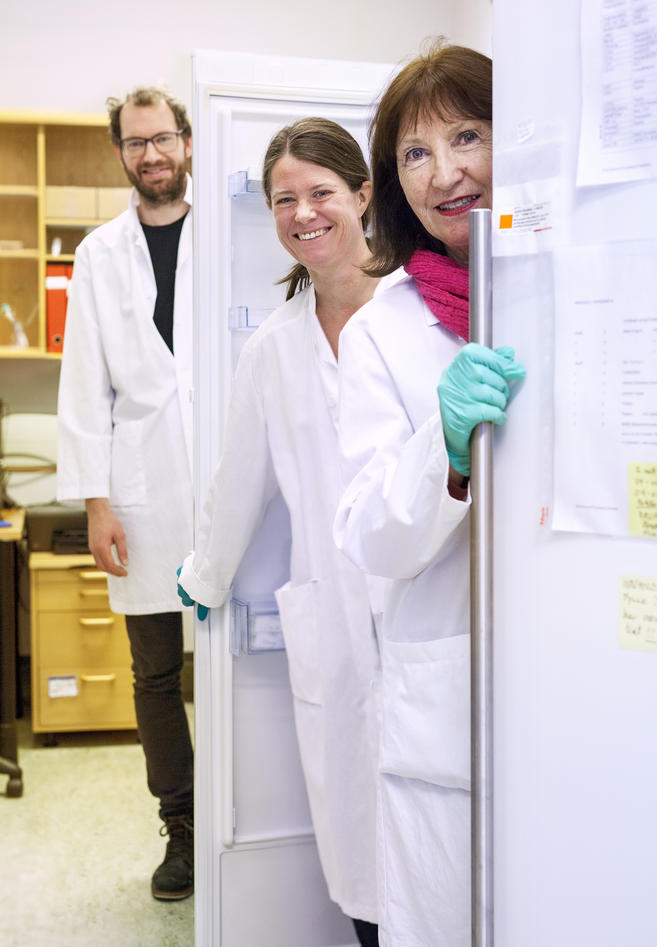Cancer Biomarkers
Professor Akslen is a specialist in surgical pathology and is directing the Tumor Biology Research Group at the Department of Clinical Medicine (University of Bergen). Since 2013, he is also the director of Centre for Cancer Biomarkers CCBIO. Akslen´s team, as is CCBIO, is engaged in translational cancer research.

Main content
Research focus
The focus of the Akslen group has been to discover and validate novel tissue-based cancer biomarkers, especially related to the tumor microenvironment – for improved biological understanding and better prediction of aggressive tumor behavior and treatment response. The group concentrates on breast cancer proteomics (by Mass Spectrometry) and single-cell analytics by multi-marker spatial mapping of tumor tissues (by Imaging Mass Cytometry).
Subprojects
1. Stromal proteomic patterns and stratification of breast cancer
2. Breast cancer hypoxia responses at the proteome level
3. Markers of cancer-neural interactions in primary and metastatic breast cancer
4. Role of nestin and stathmin in BRCA1-related and basal-like breast cancer
Important results
1. Proteomic profiling of laser capture micro-dissected breast cancer tissues has been performed, separating cancer cells and microenvironment compartments. Stromal protein signatures are different between hormone receptor positive (luminal-like) and hormone receptor negative (basal-like) tumors, being prognostically independent of intrinsic molecular classification (PAM50), also after external validation. For the first time, the group demonstrated that a stromal proteome signature is able to split the luminal A breast cancers in low-grade and high- grade categories (Finne et al., submitted).
2. Stromal protein profiles have been integrated with breast cancer cell line secretome data from baseline and hypoxic conditions, demonstrating metabolic reprogramming and differences between subtypes (Kjølle et al., in revision).
3. The group has studied the presence of neurogenesis and angiogenesis in breast cancer across subtypes, at the level of single protein expression (IHC), single-cell based multi-marker mapping by imaging mass cytometry (IMC), and by transcriptomics and proteomics at case-level. Data indicate that neurogenesis and angiogenesis are associated features and linked to aggressive breast cancer, suggesting novel treatment possibilities (Wik et al., submitted).
4. Data from the group have indicated that Stathmin might be a regulator of angiogenic and immunogenic responses in the microenvironment of aggressive breast cancer (Askeland et al., Sci Rep 2020). The project has been extended by single-cell based spatial mapping (IMC) of Stathmin in association with immunogenic and angiogenic cell populations, searching for Stathmin related cellular niches as biomarkers and potential therapy targets (Askeland et al., in preparation). Nestin, which is associated with Stathmin in breast cancer, has been linked to aggressive phenotypes and stemness (Krüger et al., Sci Rep 2017). The role of Nestin in breast cancer is being explored by CRISPR-based knockdown and animal models (Ardawatia et al., in preparation).
In addition, Akslen has developed fruitful contact and collaboration with several members of the CCBIO International Faculty. In late 2022, a novel role of PRSS2 in the tumor microenvironment was presented in collaboration with the groups of Watnick and Brekken (Sui et al., Nat Commun; PMID: 36575174).
Future plans
The group will continue to use singlecell mapping of cancer architecture to define multicellular niches with potential functional importance. In particular, interactions between tumor cells and nerves, immune cells and vascular cells will be focused upon. Hopefully, this strategy will increase the precision of prognostic and treatment-predictive biomarkers. The group will further explore the phenotypic diversity and complexity of breast cancer subtypes.
PubMed Publications
Find Akslens's PubMed publication list here.

